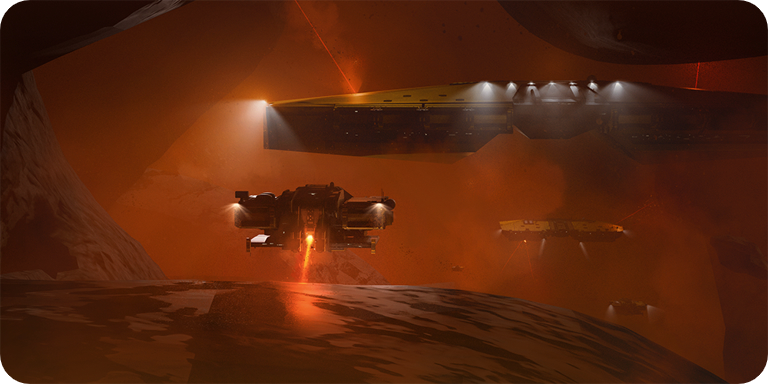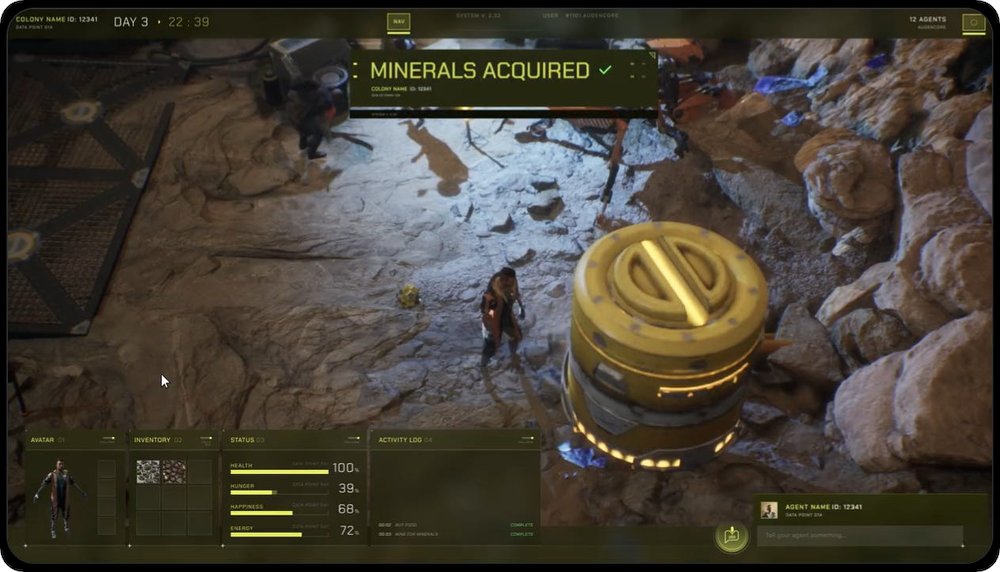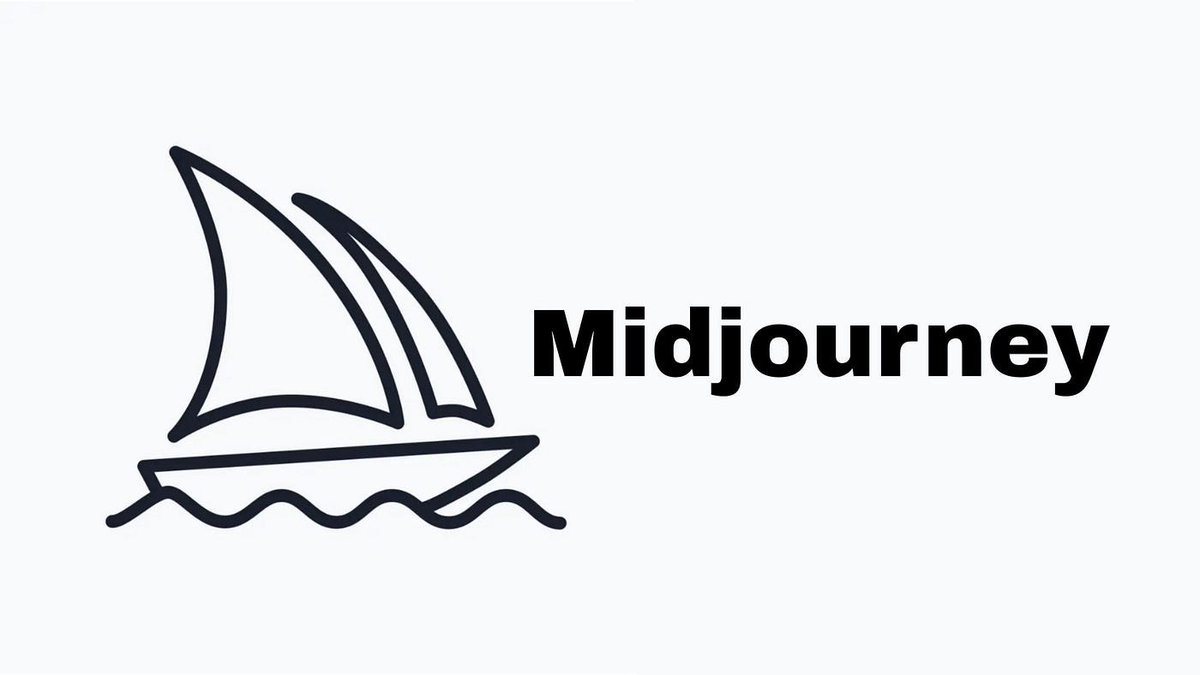3 upcoming crypto games you won't want to miss:
First off, bookmark this thread to come back later and play on your own time 🔖
Now let's dive into @wmpeaster's list 👇
Now let's dive into @wmpeaster's list 👇
☁️ @RealmsEternum
Eternum is a new onchain massively multiplayer online game (MMO) arriving on @Starknet in Q4 2024. It combines elements from 4X (explore, expand, exploit, and exterminate) and real-time strategy (RTS) games in a dynamic, fully onchain world with a player-driven economy.
The big idea? Players navigate an endless hexagonal map, forging alliances or rivalries, gathering resources, and battling for control in a strategic struggle for dominance. With an emphasis on diplomacy and resource management, Eternum will require players to balance cooperation and competition to succeed.
Each player starts with a Realm they can expand and develop, using resources that can even be converted into tokens for trading via $LORDS. The game also introduces “Hyperstructures” as high-stakes strategic targets — constructing these can bring victory but risks enemy attacks, making defense crucial.
Zooming out, Eternum is built to be composable, meaning it’s wide open to modding and expansions by the community thanks to the Dojo onchain game engine. The title also uses the onchain gaming stack of @cartridge_gg, featuring tools like session keys and Paymaster support for streamlined UX.
Keep in mind, too, that Eternum’s launch will just be one prong in the larger vision of Realms World, an interconnected ecosystem for onchain games on Starknet.
Realms World aims to operate across two layers: a flexible public layer for game creation and mods, and a stable core layer, which serves as a “digital physics” layer with governance-controlled standards. This layered design will allow multiple games, like Eternum, to coexist, share states, and interact in unique ways, so keep an eye out for the experiments to come here.
Eternum is a new onchain massively multiplayer online game (MMO) arriving on @Starknet in Q4 2024. It combines elements from 4X (explore, expand, exploit, and exterminate) and real-time strategy (RTS) games in a dynamic, fully onchain world with a player-driven economy.
The big idea? Players navigate an endless hexagonal map, forging alliances or rivalries, gathering resources, and battling for control in a strategic struggle for dominance. With an emphasis on diplomacy and resource management, Eternum will require players to balance cooperation and competition to succeed.
Each player starts with a Realm they can expand and develop, using resources that can even be converted into tokens for trading via $LORDS. The game also introduces “Hyperstructures” as high-stakes strategic targets — constructing these can bring victory but risks enemy attacks, making defense crucial.
Zooming out, Eternum is built to be composable, meaning it’s wide open to modding and expansions by the community thanks to the Dojo onchain game engine. The title also uses the onchain gaming stack of @cartridge_gg, featuring tools like session keys and Paymaster support for streamlined UX.
Keep in mind, too, that Eternum’s launch will just be one prong in the larger vision of Realms World, an interconnected ecosystem for onchain games on Starknet.
Realms World aims to operate across two layers: a flexible public layer for game creation and mods, and a stable core layer, which serves as a “digital physics” layer with governance-controlled standards. This layered design will allow multiple games, like Eternum, to coexist, share states, and interact in unique ways, so keep an eye out for the experiments to come here.

☄️ @EVE_Frontier
EVE Frontier is a space survival game in development by @CCPGames, the creators of the popular @EveOnline MMO, which has been a pioneering title in game economics for two decades.
Currently being built on @redstonexyz, a Layer 2 network designed for gaming and Autonomous Worlds, EVE Frontier will drop players in a decaying universe where they awake as the last remnants of humanity. The grand challenge? Rebuild civilization while contending with limited resources, fierce competition, and rogue AIs.
The game’s “single-shard” universe is powered by CCP’s bespoke (and soon-to-be open-sourced) Carbon engine alongside MUD, a popular framework for onchain games built by @latticexyz that lets players program and modify aspects of game worlds in real-time.
At the core of this architecture is Frontier’s “Smart Assemblies” — modular, programmable structures that players can build and deploy in space. These can range from storage units to complex, interactive entities like trading posts, defense systems, or even mission-giving structures.
Smart Assemblies can also unlock extensive possibilities for third-party devs, like coding up automated marketplaces, bounty boards, or even private economies. The idea is to add layers of tactical depth and personal expression to the game.
Like Eternum, EVE Frontier’s economy will be fully player-driven, designed with open ownership and real-world value in mind. Built on the ERC-20 and ERC-721 token standards, the economy will be wide open for trading, and players will be able to create custom assets and currencies within the game, mirroring the deep economic features that EVE Online pioneered.
EVE Frontier is a space survival game in development by @CCPGames, the creators of the popular @EveOnline MMO, which has been a pioneering title in game economics for two decades.
Currently being built on @redstonexyz, a Layer 2 network designed for gaming and Autonomous Worlds, EVE Frontier will drop players in a decaying universe where they awake as the last remnants of humanity. The grand challenge? Rebuild civilization while contending with limited resources, fierce competition, and rogue AIs.
The game’s “single-shard” universe is powered by CCP’s bespoke (and soon-to-be open-sourced) Carbon engine alongside MUD, a popular framework for onchain games built by @latticexyz that lets players program and modify aspects of game worlds in real-time.
At the core of this architecture is Frontier’s “Smart Assemblies” — modular, programmable structures that players can build and deploy in space. These can range from storage units to complex, interactive entities like trading posts, defense systems, or even mission-giving structures.
Smart Assemblies can also unlock extensive possibilities for third-party devs, like coding up automated marketplaces, bounty boards, or even private economies. The idea is to add layers of tactical depth and personal expression to the game.
Like Eternum, EVE Frontier’s economy will be fully player-driven, designed with open ownership and real-world value in mind. Built on the ERC-20 and ERC-721 token standards, the economy will be wide open for trading, and players will be able to create custom assets and currencies within the game, mirroring the deep economic features that EVE Online pioneered.

🌌 @ParallelColony
Parallel Colony is an upcoming game developed by Parallel Studios, best known for their trading card game, @ParallelTCG. Colony is set within the @EchelonFND ecosystem, which revolves around the $PRIME token, though it's being developed on @Solana as opposed to the Ethereum + Base combo that the main TCG uses.
That said, Solana will come in handy for facilitating the high-speed transactions crucial for managing the game's complex AI interactions. That's because Colony is centered around AI-powered avatars that can act autonomously, learning and adapting to the game's survival commands along the way. This will create an environment where human players are like mentors to their agents.
Holders of the original Parallel Avatar NFTs on Ethereum will still be able to readily dive in, though, while $PRIME will be used to create new avatars as NFTs on Solana. These avatars each start with a basic profile shaped by the player's choices but quickly evolve individual personalities as they experience and learn. Additionally, these AI avatars have their own digital wallets and trade in-game assets per their goals.
Notably, the underlying AI infrastructure here is @AIWayfinder, the omnichain AI agents protocol that will facilitate in-game avatar autonomy without constant player input. Through “wayfinding paths,” these avatars can efficiently navigate cross-chain environments, enabling them to buy, sell, and interact with in-game assets while learning from past experiences.
Although Colony will offer a free-to-play mode, it differs from traditional free games. Free avatars will be able to explore and interact but cannot earn $PRIME or mint in-game assets as NFTs. And free players will still need to fund their avatars' in-game transactions, such as paying for large language model (LLM) calls and so forth. In other words, full rewards and ownership will be reserved for players who are direct stakeholders in the Echelon Prime ecosystem.
Parallel Colony is an upcoming game developed by Parallel Studios, best known for their trading card game, @ParallelTCG. Colony is set within the @EchelonFND ecosystem, which revolves around the $PRIME token, though it's being developed on @Solana as opposed to the Ethereum + Base combo that the main TCG uses.
That said, Solana will come in handy for facilitating the high-speed transactions crucial for managing the game's complex AI interactions. That's because Colony is centered around AI-powered avatars that can act autonomously, learning and adapting to the game's survival commands along the way. This will create an environment where human players are like mentors to their agents.
Holders of the original Parallel Avatar NFTs on Ethereum will still be able to readily dive in, though, while $PRIME will be used to create new avatars as NFTs on Solana. These avatars each start with a basic profile shaped by the player's choices but quickly evolve individual personalities as they experience and learn. Additionally, these AI avatars have their own digital wallets and trade in-game assets per their goals.
Notably, the underlying AI infrastructure here is @AIWayfinder, the omnichain AI agents protocol that will facilitate in-game avatar autonomy without constant player input. Through “wayfinding paths,” these avatars can efficiently navigate cross-chain environments, enabling them to buy, sell, and interact with in-game assets while learning from past experiences.
Although Colony will offer a free-to-play mode, it differs from traditional free games. Free avatars will be able to explore and interact but cannot earn $PRIME or mint in-game assets as NFTs. And free players will still need to fund their avatars' in-game transactions, such as paying for large language model (LLM) calls and so forth. In other words, full rewards and ownership will be reserved for players who are direct stakeholders in the Echelon Prime ecosystem.

• • •
Missing some Tweet in this thread? You can try to
force a refresh















